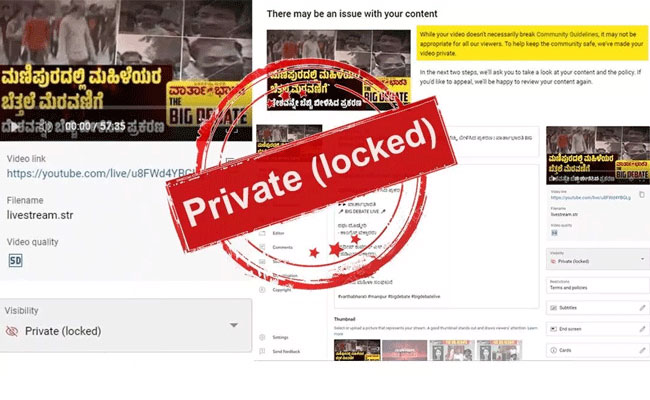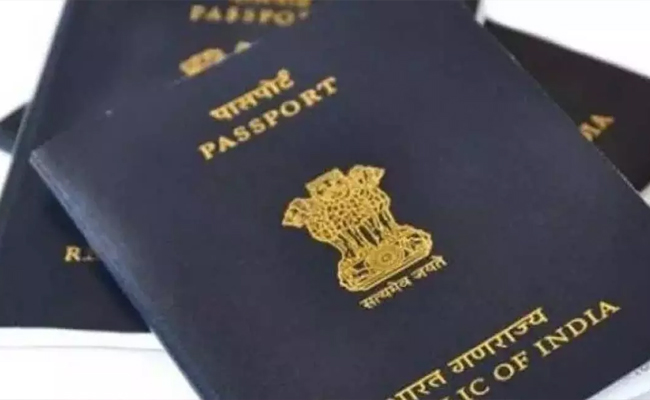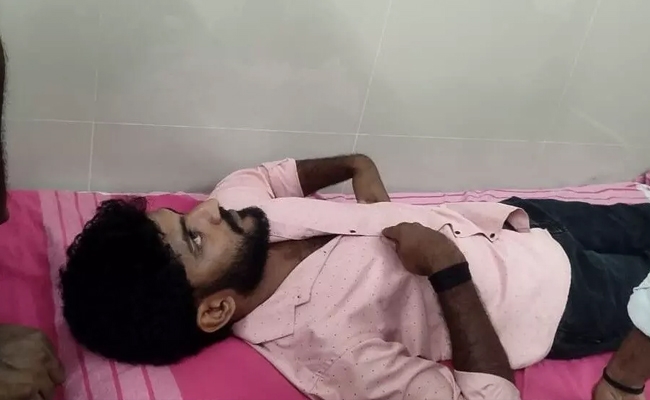Mangaluru: YouTube has blocked a video of the debate conducted by Vartha Bharati channel on the sexual assault of two women in Manipur, citing it as unsuitable for its viewers. The discussion, part of the program 'The Big Debate,' titled 'Naked Parade of Women in Manipur; Nation Stunned,' was aired live on Vartha Bharati's YouTube channel at 8 pm on Thursday. Within an hour, the video garnered over 8,000 views, but on Friday, it was marked as 'private (blocked),' denying further access to viewers.
The Central Government issued an order on Thursday to social media platforms, including Twitter, Facebook, YouTube, and Instagram, to remove all provocative posts, including videos, related to the Manipur incident.
However, Vartha Bharati's debate video did not contain any video clips or photos related to the Manipur incident. It only featured images of the accused, without showing any pictures or videos of the victims of the assault. Additionally, debates on the violence and sexual attack on women in Manipur were conducted and posted on several other YouTube channels, not just Vartha Bharati's.
Vartha Bharati had approached the BJP with a request to send a representative to speak on the program, but the party's media in charge declined, stating that Prime Minister Modi had already addressed the country on the issue and condemned the incident in Manipur, and declined to participate in the program.
Consequently, the debate proceeded with speakers from the Congress, the JD(S), and two social activists, with senior journalist Manjula Mastikatte anchoring the program.
YouTube has said that while the content doesn't necessarily break any of their Community Guidelines, it may not be appropriate for all its viewers. Vartha Bharati had appealed to YouTube to lift the blockade on their debate video, but the request was rejected by the video streaming platform.
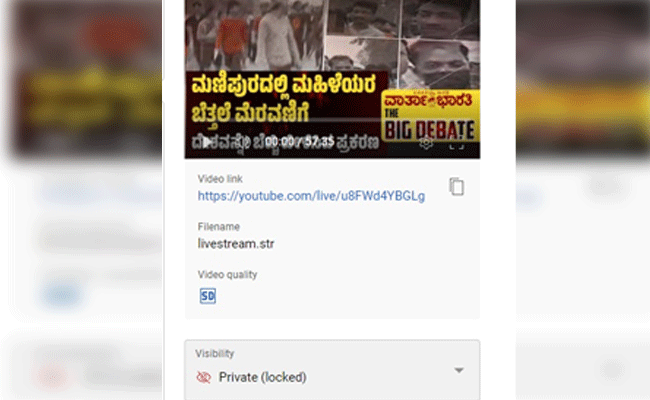
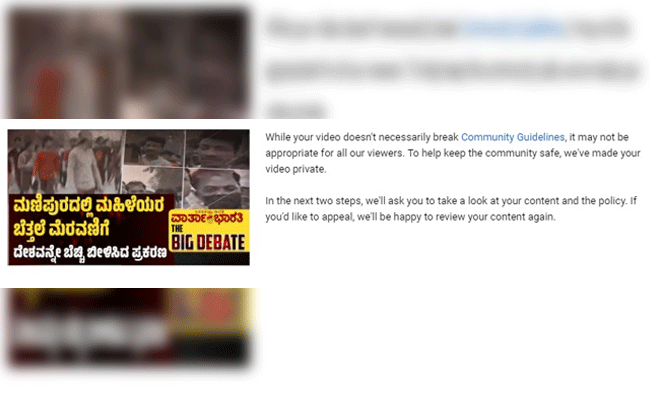
Let the Truth be known. If you read VB and like VB, please be a VB Supporter and Help us deliver the Truth to one and all.
Thiruvanthapuram: Amid the uproar over ‘The Kerala Story 2‘and allegations that the film wrongly portrays Kerala, an analysis by The News Minute has presented claims that contradict the narrative shown in the movie.
In a teaser released by the filmmakers, the film depicts several Hindu women being converted to Islam.
However, TNM’s analysis of Kerala Gazette records shows a different trend.
According to the report, Hinduism has attracted the highest number of converts in the state, followed by Islam and Christianity, offering a data-based view of religious conversion patterns in Kerala.
The plot of the upcoming film ‘The Kerala Story 2’ revolves around a two-decade-old conspiracy theory alleging a jihadist scheme to marry Hindu women and convert them to Islam. The film’s release has been stayed by the Kerala High Court on Thursday, the movie was supposed to release on Friday, February 27.
The first film, released in 2023, claimed that 32,000 women had been converted by jihadists in Kerala. That claim was later questioned by the Supreme Court of India, which pulled up the makers for using fake data.
Despite the premise of the sequel remaining the same, the producers have claimed that this time they spent seven months conducting “research.”
The TNM team stated in its report that for several months they researched religious conversions in Kerala and uncovered what they described as significant facts.
According to the report, Hinduism has been attracting the largest number of converts in the state, more than Christianity or Islam.
An earlier TNM report in the same series had pointed to the existence of a statewide network of Hindutva groups, including the Vishva Hindu Parishad, which focuses on converting Dalits to Hinduism.
The News Minute in its report mentioned that their team went through more than 10,000 pages of the Kerala Gazette and found that 365 Keralites converted to Hinduism between January and December 2024.
Of these, 262 were Dalit Christians and Muslims. The report stated that many among them were induced by the promise of securing Scheduled Caste status after conversion to Hinduism.
Who has converted to which religion ?
According to the published figures in the state gazette, according to The News Minute, conversions to Islam included 276 people who moved from Hinduism to Islam, comprising 154 women and 122 men. In addition, 67 people converted from Christianity to Islam, of whom 42 were women and 25 were men. Taken together, a total of 343 people converted to Islam during the period.
Meanwhile, conversions to Hinduism accounted for 329 people who moved from Christianity to Hinduism, including 180 women and 149 men. Another 36 people converted from Islam to Hinduism, with 24 women and 12 men. In total, 365 people converted to Hinduism.
In Christianity 234 people shifted from Hinduism to Christianity, comprising 130 women and 104 men. A further 21 people converted from Islam to Christianity, including 13 women and 8 men. Altogether, the total number of people who converted to Christianity stood at 255 .

